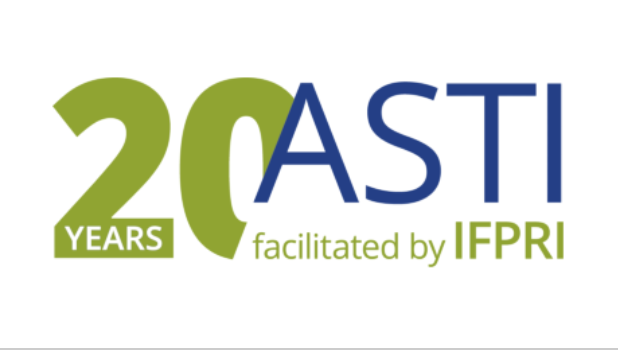This year marks the 20th anniversary of ASTI, which provides open-source data, analyses, and outreach around agricultural research systems in developing countries around the world.
Established by CGIAR, ASTI was initially led by IFPRI and the former International Service for International Agricultural Research (ISNAR). In the program’s early days, the focus was on developing key indicators and statistical methods. Data collection was a daunting task, as internet and email access were very limited in many developing countries. Often, the only way to get information was to send (and resend) letters, faxes, and telexes, and to visit (and revisit) research institutes in person. Then came the work of manually entering the data into computer files.
Expanding internet access and other technological advancements paved the way for ASTI to make its data freely available online—becoming one of CGIAR’s first open-access data sources. With regular email communication becoming the norm and supplementing in-person meetings, ASTI began building relationships with a broadening network of national and regional partners.
ASTI’s transformation to a more holistic program
Technological advancements not only enabled data collection, processing, and sharing, but also facilitated the development of creative solutions for accessing, presenting, and analyzing the data. Fruitful partnerships became possible across national, regional, and international boundaries. Importantly, sustained funding from the Bill & Melinda Gates Foundation and numerous other donors was key to expanding and building the capacity of ASTI’s network, to collaboration with partners for more in-depth analyses, and to greater outreach to disseminate findings.
Increased use of ASTI’s evidence over time
ASTI’s many unique outputs have been used extensively by a wide range of stakeholders, and the ASTI team contributed to many influential global and regional meetings, initiatives and reports. The current Australian Centre for International Agricultural Research (ACIAR)-funded partnership between ASTI and the Asia-Pacific Association of Agricultural Research Institutions (APAARI) in Southeast Asia (for strengthening ASTI’s data collection, analyses, and outreach in the Indo-Pacific region), exemplifies ASTI’s planned future direction. The strategy is to gradually devolve ownership of data collection and management functions to national and regional partners, while focusing on the relevance, uptake, and impact of ASTI’s analytical and outreach functions.
ASTI in retrospect
To mark its 20th anniversary, ASTI has released a series of five notes that focus on—and update—some of the program’s key advancements and insights over two decades:
- Participation of women in agricultural research. ASTI’s gender-disaggregated data have shown that the participation of female scientists in agricultural research has increased over time, but female researchers are often younger, less well-qualified, and less represented in management compared with their male colleagues.
- Volatile funding trends. ASTI data brought to light the problem of volatility in agricultural research investment in Africa, which is much higher than in other developing regions and has been largely caused by the short-term, project-oriented nature of donor and development bank funding.
- The challenge of sustaining researcher expertise. ASTI’s data on researchers by age cohort have highlighted a looming issue in many countries: Senior, well-qualified agricultural researchers aging out of the system without enough appropriately trained and experienced colleagues ready to replace them.
- Underinvestment in research systems. ASTI developed a more nuanced measure of an “attainable level” of national investment based on the structural characteristics of each country’s economy and agricultural sector. This index demonstrates that underinvestment is prevalent among countries with small- to medium-sized agricultural research systems, a reality that conventional measures of underinvestment mask.
- Diverse research focus. ASTI analysis of data on the allocation of research resources has dispelled the notion that staple crops are the dominant focus of agricultural research. Evidence shows that many national agricultural research systems have a broad focus on a variety of both staple and nonstaple crops, as well as many other important areas.
The future
Decision makers continue depend on policy-relevant data and analyses to make well-informed investment decisions and to formulate high-impact policies related to agricultural research. However, without sufficient and sustainable funding, ASTI’s core legacy as the trusted repository of internationally comparable, long-term agricultural R&D data is unlikely to last. Continuing and robust support is needed to preserve this global public good.
Nienke Beintema is the former head of ASTI.







